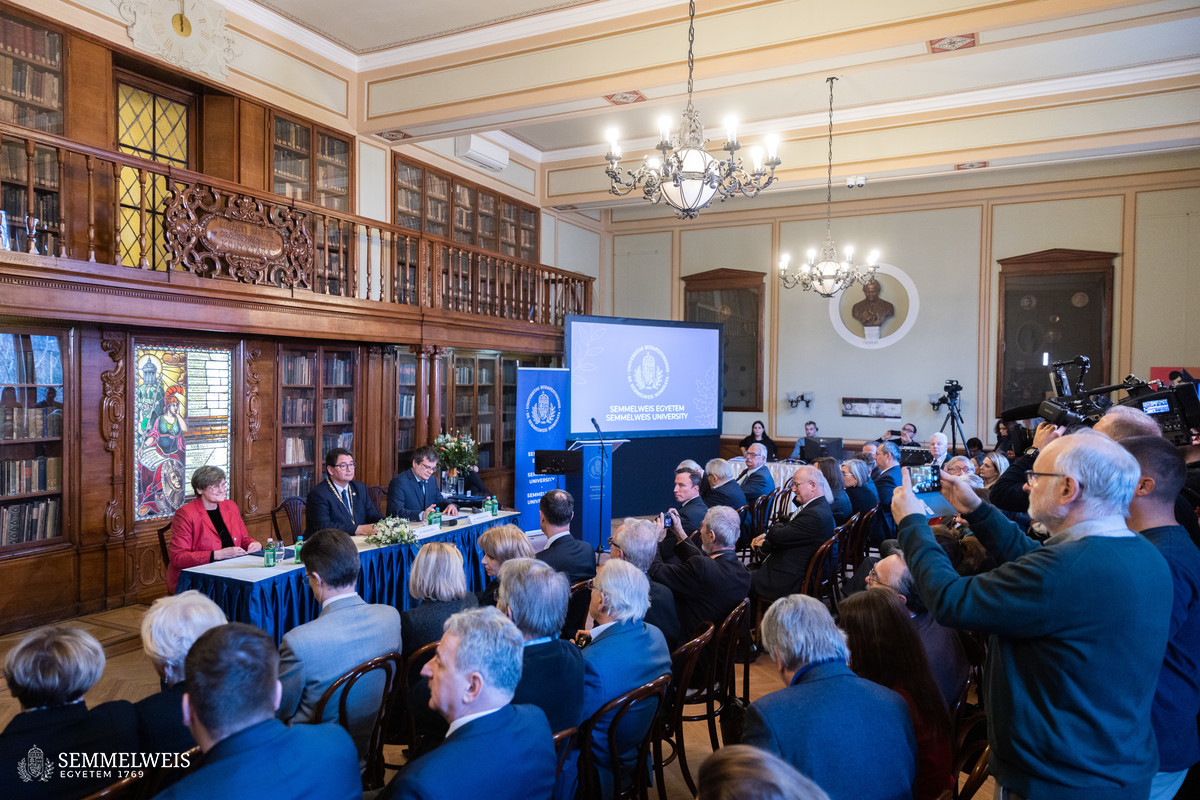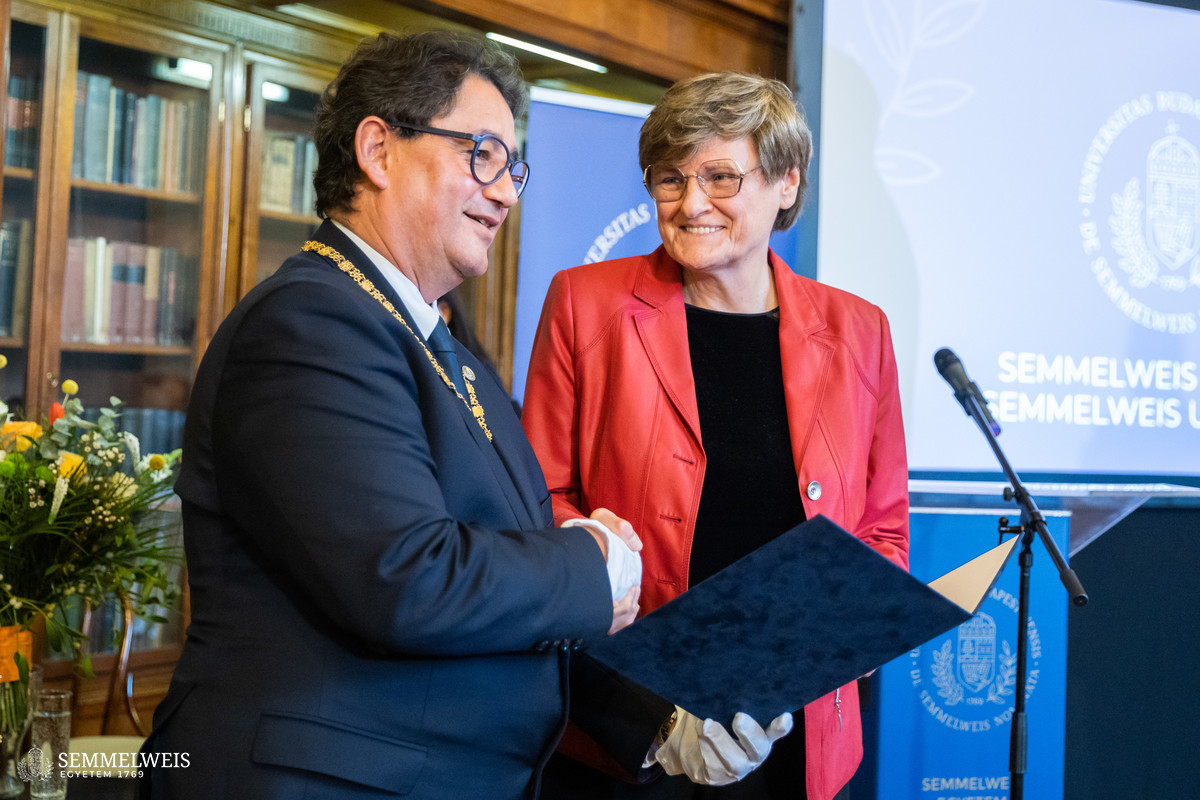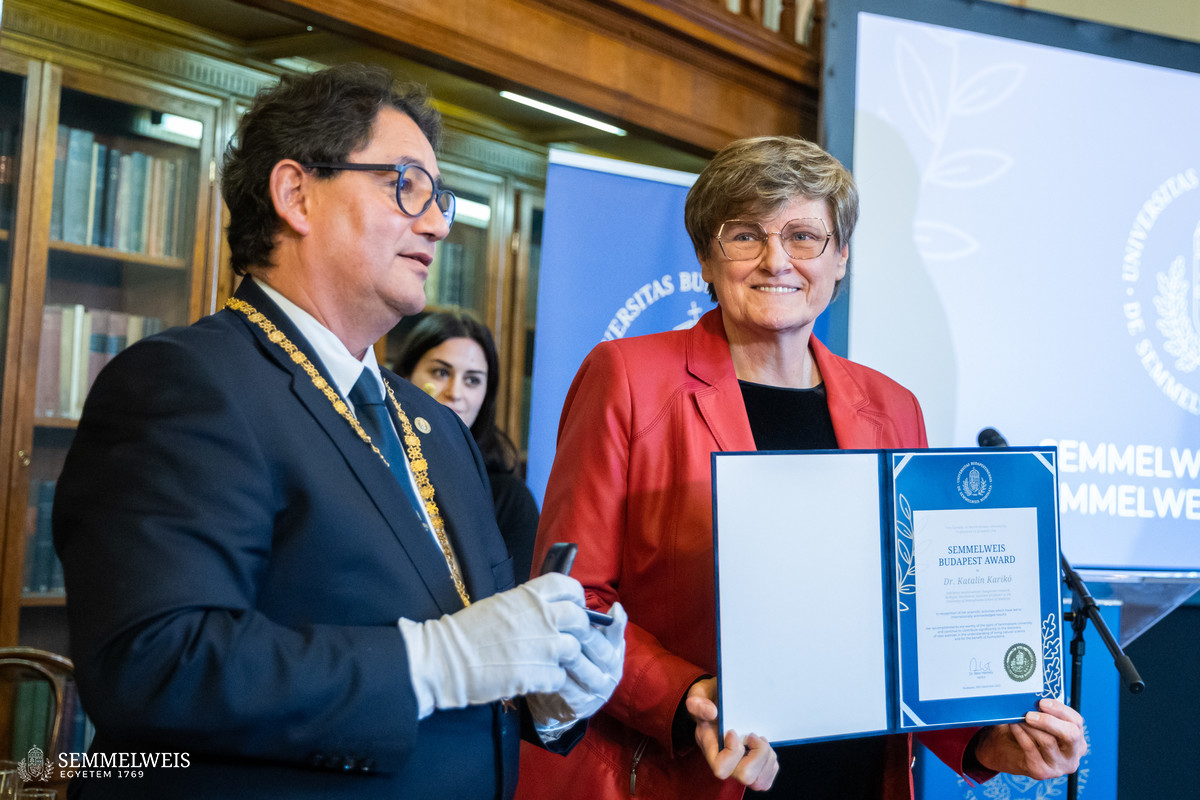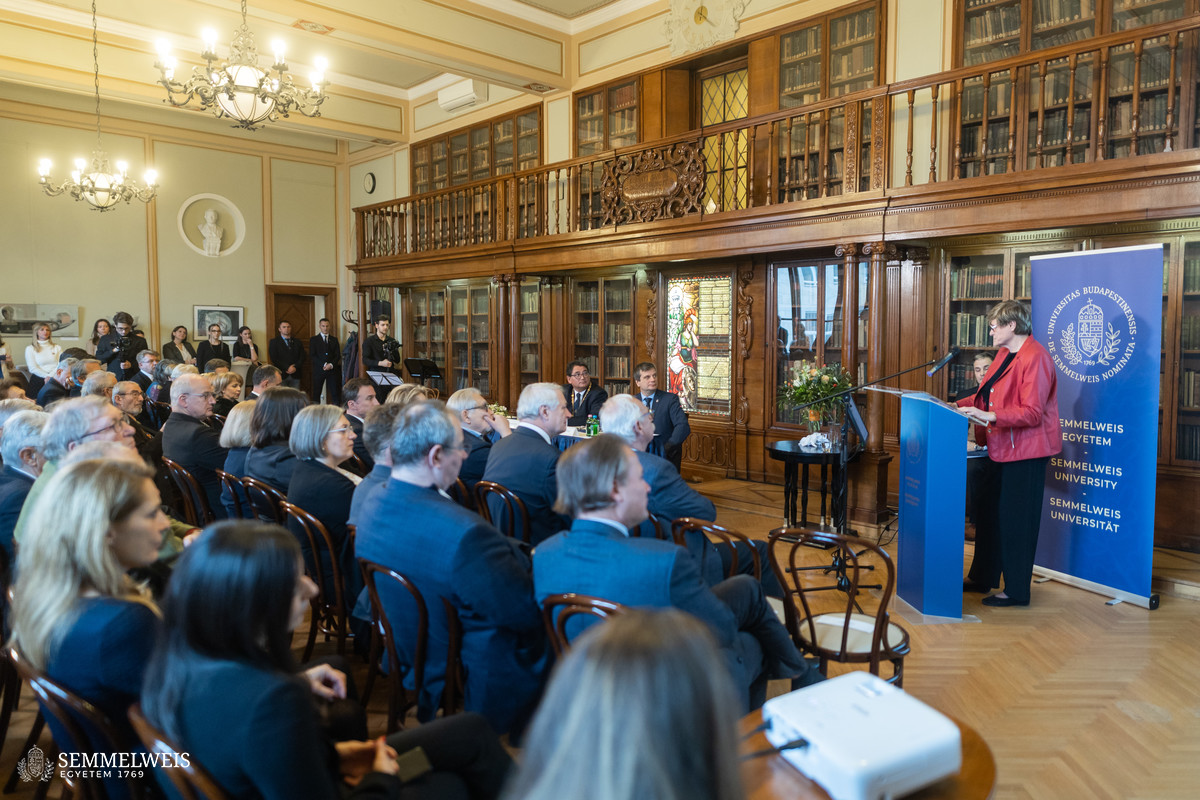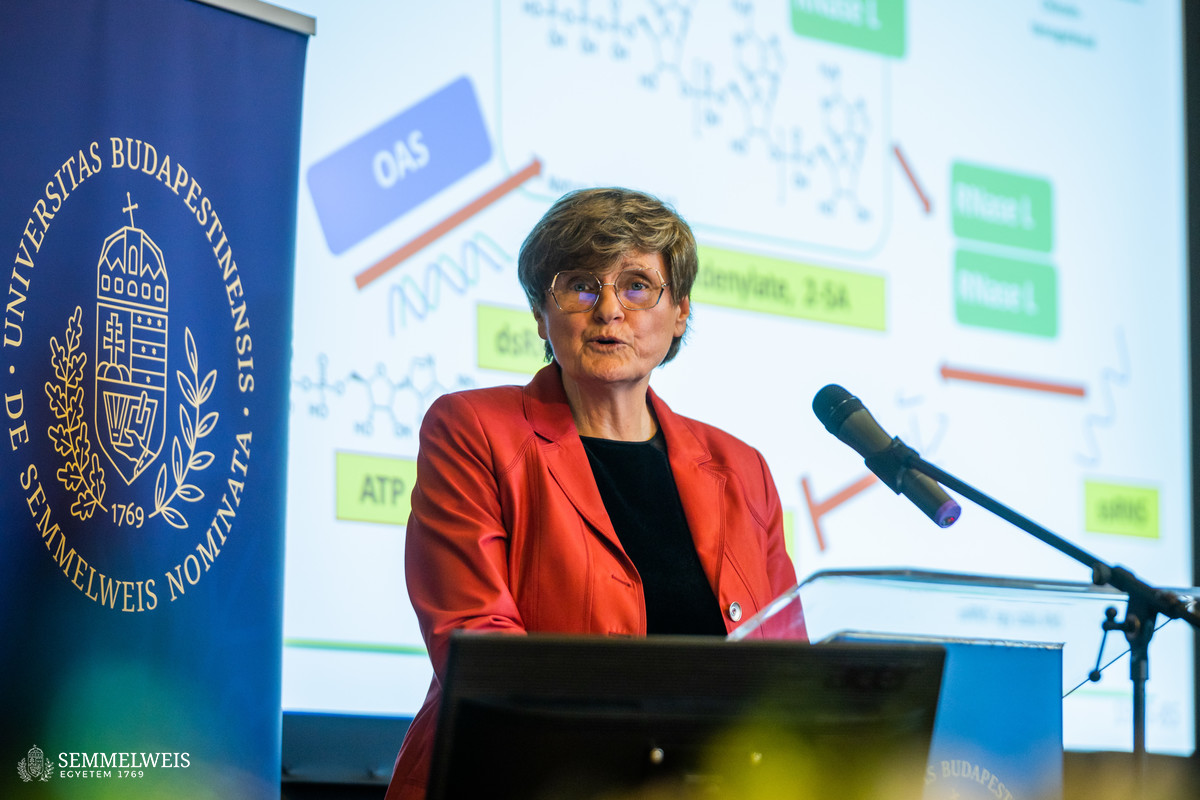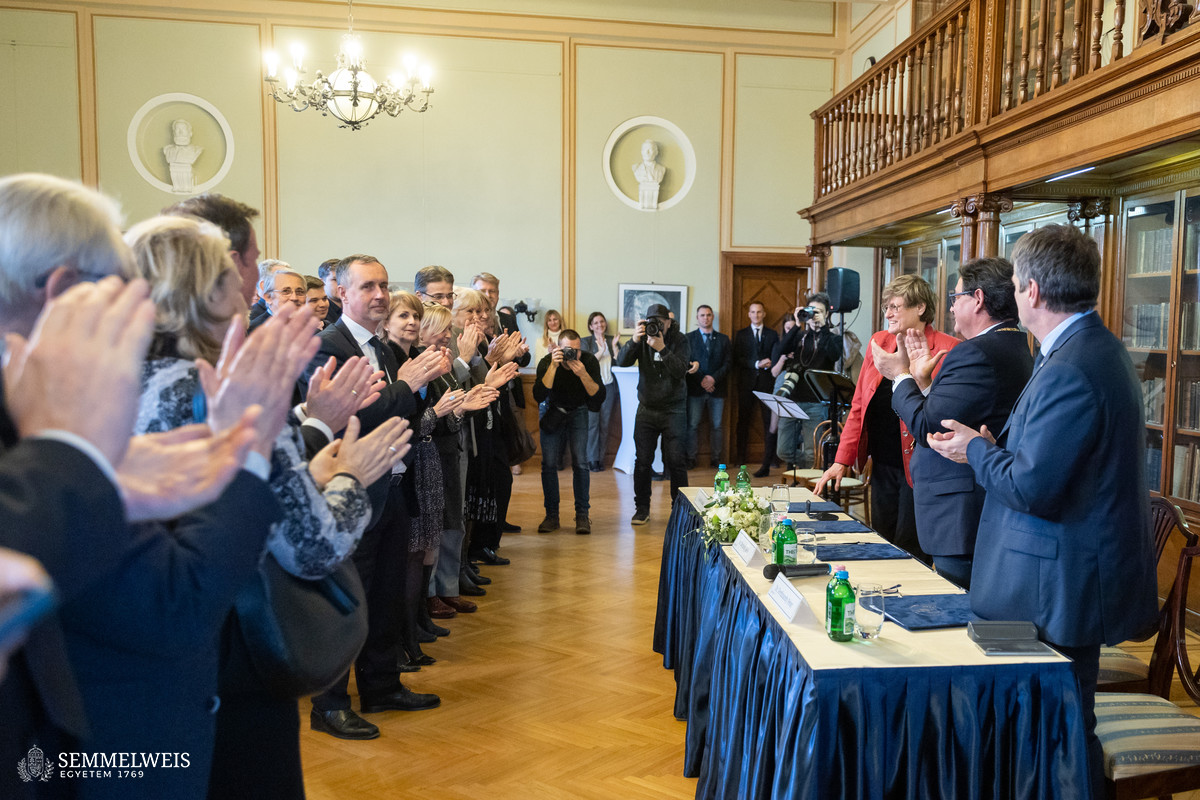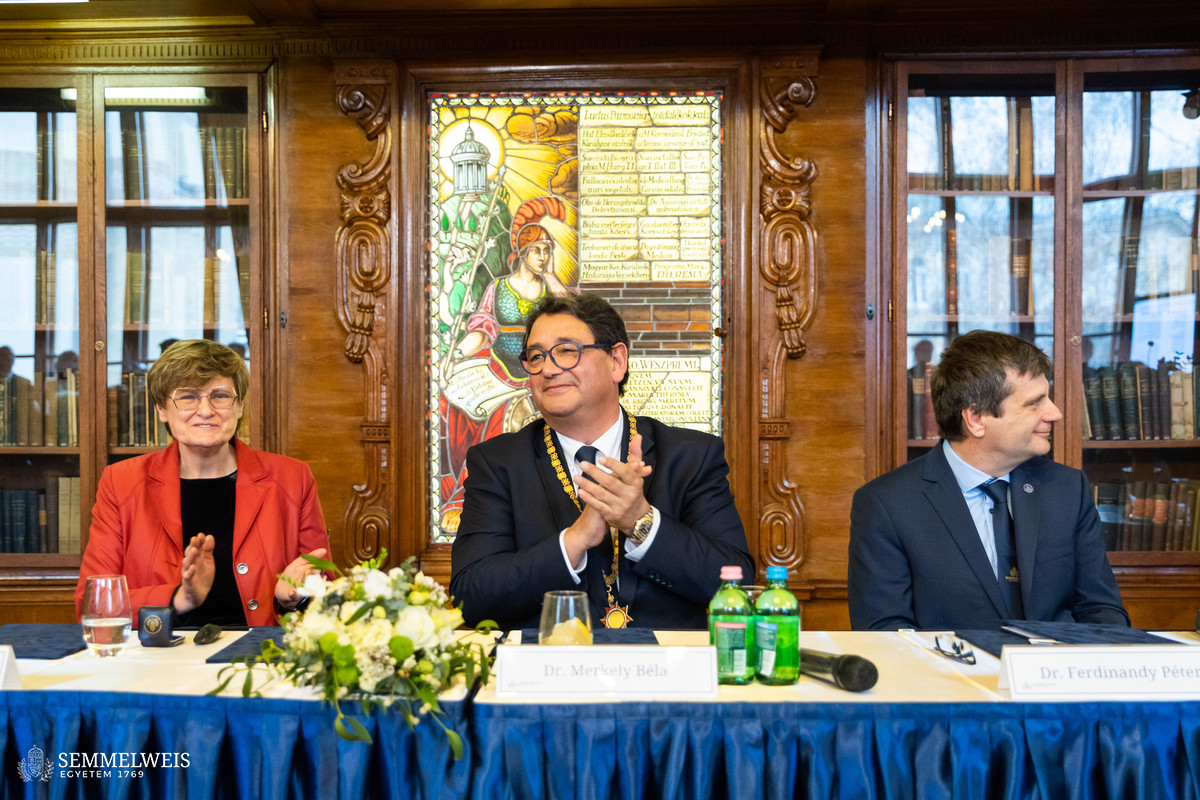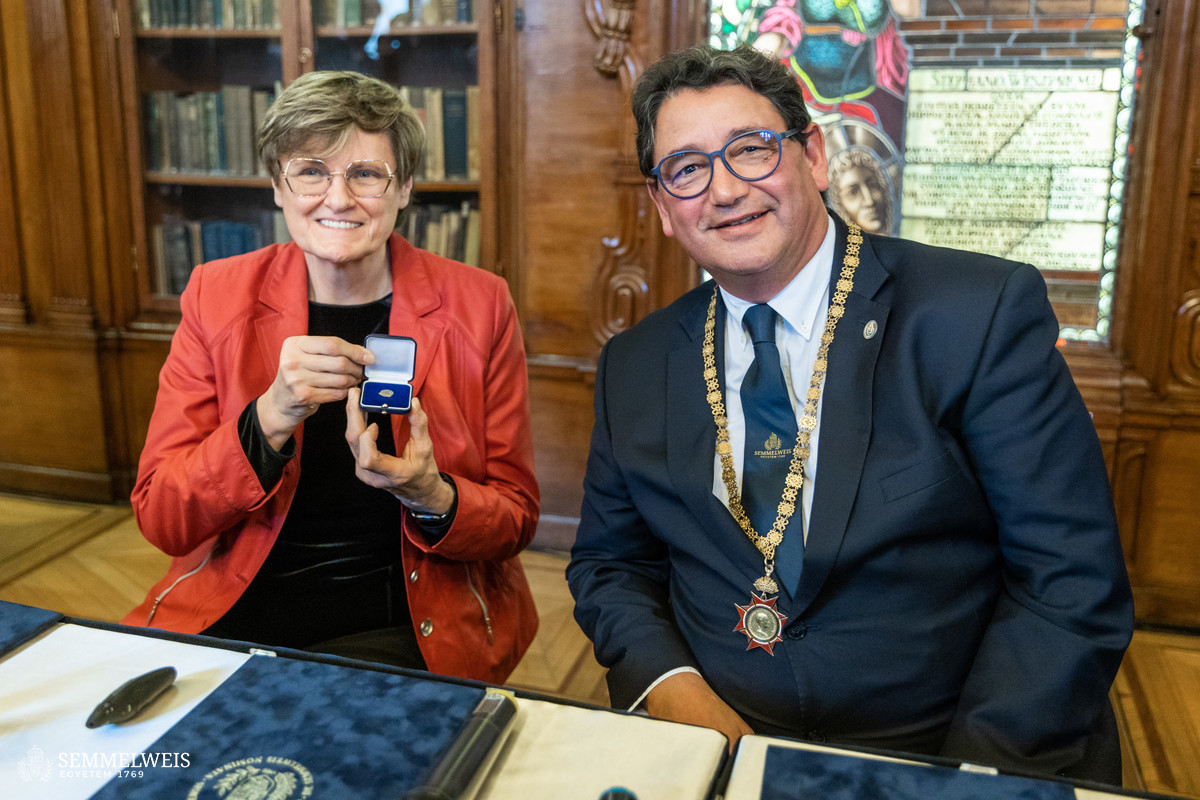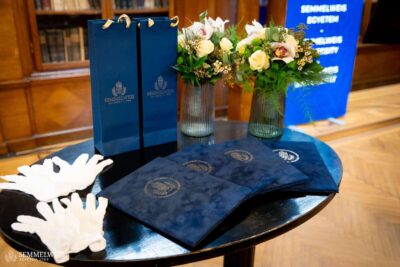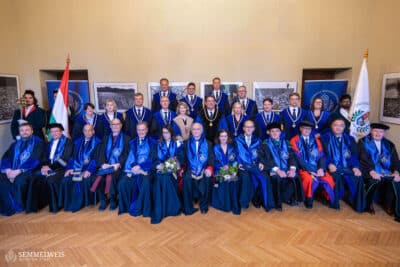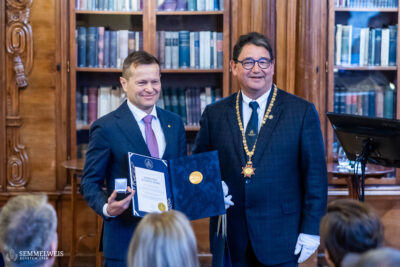At the award ceremony, Dr. Béla Merkely, Rector of Semmelweis University, recalled that Dr. Katalin Karikó has been researching and experimenting with determination since the late seventies. She saw mRNA technology as a new method of treatment even before anyone had thought of it. Indeed, she persisted when no one believed her, and kept on working with perseverance even when she encountered difficulties and obstacles.
In all probability, her discovery saved the lives of millions. Thanks to her, we now live in a safer world, because we have acquired a weapon against the COVID-19 virus that can be deployed much more quickly in the future, even in the event of another pandemic.”
– stressed the rector, adding that without this new method, the epidemic would not have been fought so effectively; it would have lasted much longer, and claimed many more victims.
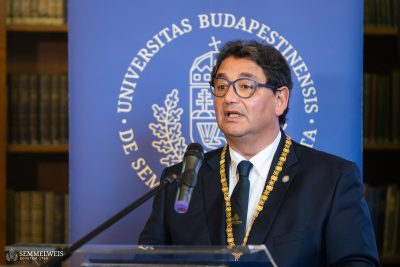 “Teaching the human body to defend itself is one of the most ancient knowledge of medicine. Transform the immune cells to protect and, if possible, heal the body: one of the greatest achievements of modern science,” said Dr. Béla Merkely. According to the rector, the technology developed by Dr. Karikó and her colleagues will enable us to fight more effectively not only viruses but also a range of other diseases, opening up new horizons in medicine.
“Teaching the human body to defend itself is one of the most ancient knowledge of medicine. Transform the immune cells to protect and, if possible, heal the body: one of the greatest achievements of modern science,” said Dr. Béla Merkely. According to the rector, the technology developed by Dr. Karikó and her colleagues will enable us to fight more effectively not only viruses but also a range of other diseases, opening up new horizons in medicine.
“Thank you for teaching us not only to see, understand and appreciate the amazing potential of mRNA technology, but also to harness and utilize it. This gratitude is expressed by the award, which recognizes not only the outstanding work of a scientist, but also the excellence of a person: her unique perseverance and admirable tenacity,” concluded the rector.
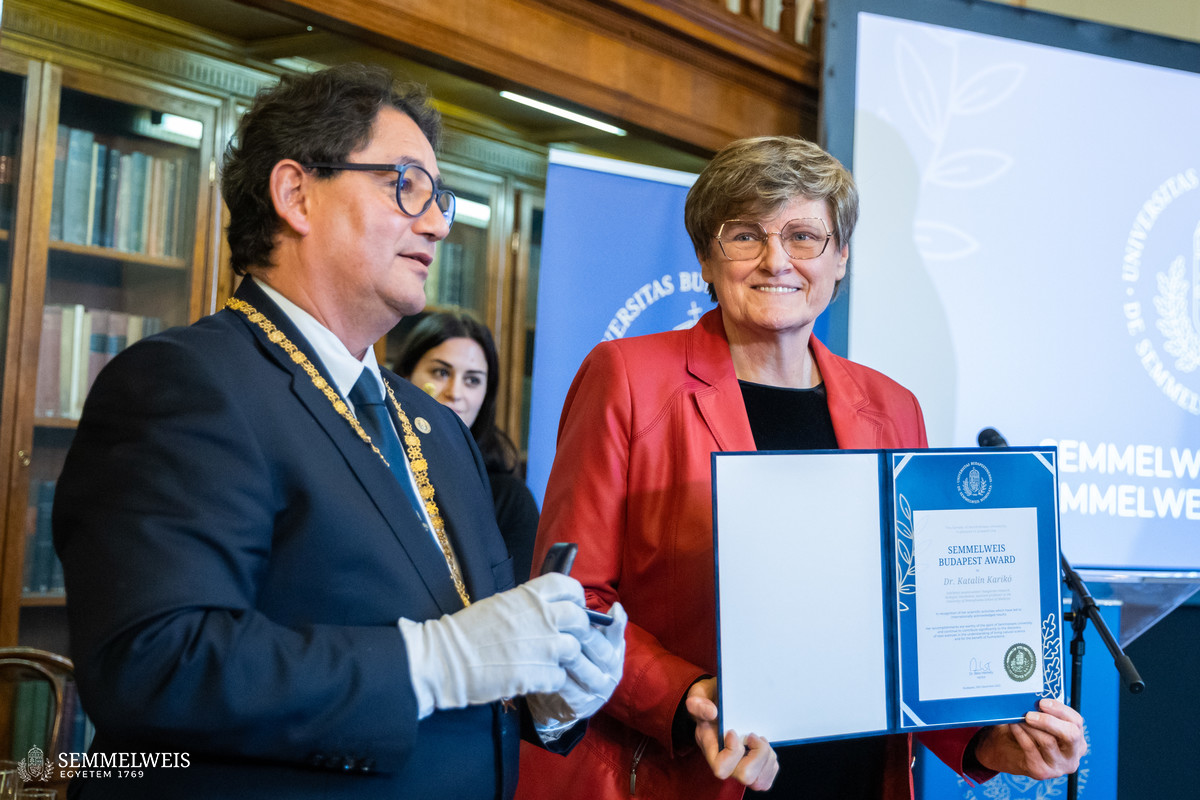 After receiving the Semmelweis Budapest Award, Dr. Katalin Karikó gave a comprehensive talk on the most important milestones of her career, both from a professional and a personal point of view. First, she described the long road that led to the discovery of the messenger RNA in 1961, which 60 years later became the foundation for the COVID-19 vaccine approved by the FDA (Food and Drug Administration in the US).
After receiving the Semmelweis Budapest Award, Dr. Katalin Karikó gave a comprehensive talk on the most important milestones of her career, both from a professional and a personal point of view. First, she described the long road that led to the discovery of the messenger RNA in 1961, which 60 years later became the foundation for the COVID-19 vaccine approved by the FDA (Food and Drug Administration in the US).
In the second part of her presentation, Dr. Katalin Karikó gave a personal overview of the defining moments that shaped her professional development. She graduated from the University of Szeged and completed her PhD at the Szeged Biological Research Centre. In its lipid laboratory, she found mentors – namely Ernő Duda and Éva Kondorosi – who influenced her entire career, since she was introduced to the technology of delivering different substances into mammalian cells in liposomes by them. She then worked at Jenő Tomasz’s RNA laboratory to expand her knowledge in biochemistry, where she investigated the antiviral properties of RNA. After the years spent in Szeged, she continued her work in the United States. In 1989, she started researching mRNA at the University of Pennsylvania as a molecular biologist, where she experimented with the technique extensively for many years. “Together with some of my highly skilled and dedicated colleagues, we worked on a new approach to treat stroke patients. Sometimes it doesn’t take more than a few enthusiastic people to succeed,” underlined Dr. Katalin Karikó.
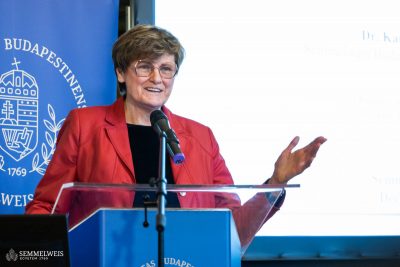 Despite her dedication, she did not get ongoing support, so in 2013, she signed a contract with BioNTech in order to continue her research. Overall, she said, she owes a debt of gratitude not only to those who challenged her, but also to those who trusted her mission and supported her, such as her colleagues at the Department of Cardiology and Neurosurgery at the University of Pennsylvania. In her closing remarks, the professor expressed her appreciation for her teachers, mentors and family, with special thanks to László Orosz, Ernő Duda and Éva Kondorosi, who inspired her during her years in Szeged, where she said that she learned the most important thing, along with many others in her career: how to do research properly. “It would be very important that the emerging generation is taught at universities by those who are at the forefront of research themselves, and for that reason, it would be useful if research institutes and higher education in the field were centralized in one place,” said Dr. Katalin Karikó.
Despite her dedication, she did not get ongoing support, so in 2013, she signed a contract with BioNTech in order to continue her research. Overall, she said, she owes a debt of gratitude not only to those who challenged her, but also to those who trusted her mission and supported her, such as her colleagues at the Department of Cardiology and Neurosurgery at the University of Pennsylvania. In her closing remarks, the professor expressed her appreciation for her teachers, mentors and family, with special thanks to László Orosz, Ernő Duda and Éva Kondorosi, who inspired her during her years in Szeged, where she said that she learned the most important thing, along with many others in her career: how to do research properly. “It would be very important that the emerging generation is taught at universities by those who are at the forefront of research themselves, and for that reason, it would be useful if research institutes and higher education in the field were centralized in one place,” said Dr. Katalin Karikó.
The recent winner of the Semmelweis Budapest Award revealed that she is now looking to focus more on addressing the younger generation. Two books about her life for children have been published recently, one in May this year in Hungary and the other in the United States. “I want to convey to young people the beauty of being a researcher, a vocation chosen from within, and how much strength and joy it can give,” she added.
The Senate of the university decided to confer the Semmelweis Budapest Award to Dr. Katalin Karikó in the summer of 2021. Established in 2009, the award is given to a professional who has demonstrated outstanding scientific results worldwide, is active in the field of biomedical research, whose achievements are worthy of the spirit of the university’s namesake and who contributes to the discovery of new paths in natural science. Previous winners are:
- 2020 – Dr. Péter Gloviczki
- 2019 – Dr. Botond Roska
- 2018 – Dr. Petr Widimský
- 2017 – Sir Ravinder N. Maini
- 2016 – Dr. Stefan W. Hell
- 2015 – Dr. Tomas Hökfelt
- 2014 – Dr. György Klein
- 2013 – Dr. György Oláh
- 2012 – Dr. Péter Somogyi
- 2011 – Professor Sir George Radda
- 2010 – Professor Jeremy K. Nicholson
Dr. Katalin Karikó is a research biologist and biochemist whose discoveries paved the way for the development of mRNA-based vaccines for medical use; she is an honorary member of the Hungarian Academy of Sciences and an elected member of the Academia Europaea. After graduating as a biologist, she started her career at the Biological Research Centre of the Hungarian Academy of Sciences in Szeged, where she was already interested in the therapeutic application of RNA. Over time, she continued her research in the United States and in 2005, together with Drew Weissman, she made a major breakthrough at the University of Pennsylvania. She was the first to document which chemical modifications of the nucleoside components of mRNA help to increase its stability and reduce its immunogenicity, laying the foundations for its therapeutic use. The next challenge was the efficient delivery of the modified mRNA into living cells. In 2017, together with her research student Norbert Pardi, they found a solution by enclosing the modified mRNA in a suitable lipid shell. These findings have enabled the widespread use of mRNA-based vaccines against the new type of coronavirus and have brought Dr. Katalin Karikó worldwide scientific recognition, with several patents related to mRNA technology to her name. With her support, Norbert Pardi has been actively collaborating with Zoltán Jakus’ research group at Semmelweis University for several years. Recently, they induced organ-specific lymphatic vascular growth through the expression of a lymphatic growth factor and successfully reversed experimental lymphedema. Dr. Katalin Karikó’s achievements have been awarded several prestigious prizes, like the Lasker-DeBakey Clinical Medical Research Award, the Rosenstiel Prize, the Bill Foege Global Health Prize, Louisa Gross Horwitz Prize, Vilcek Prize, or The 2022 Tang Prize in Biopharmaceutical Science.
Viktória Kiss
Photo: Bálint Barta – Semmelweis University
